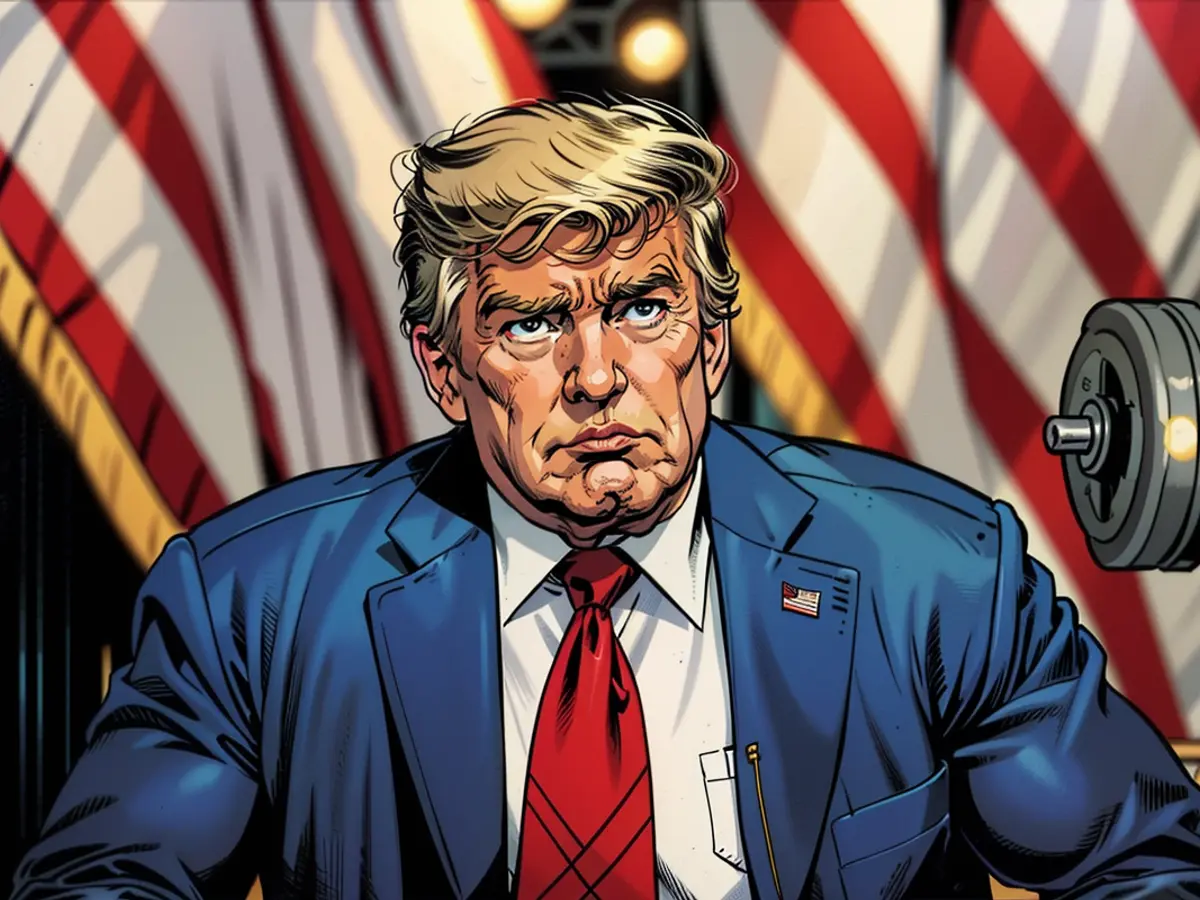During his campaign, Trump continually targets Harris, maintaining an unwavering focus on Biden.
Trump's campaign has taken a hostile approach towards Vice President Kamala Harris, organizing a series of rallies in key states with restricted attendance and secure surroundings. The aim is to counteract the Democratic convention by launching critiques centered on policy, a strategy urged by Trump's allies in recent weeks.
However, relinquishing control over the presidential position has not been a straightforward process for Trump, according to his advisors.
One advisor, when asked if Trump would watch Biden's speech on Monday night, simply responded, "Of course."
Trump frequently utilizes social media to voice concerns about Biden retreating from the race, with no concrete proof. He often implied that Biden might decide to rejoin the race until the virtual Democratic delegate roll call confirmed otherwise.
"I think he's got a touch of nostalgia for where things were a month ago," said a GOP official who has recently spoken with Trump.
Trump's initial event in a Pennsylvania manufacturing plant attended by approximately 150 individuals demonstrated an attempt to adhere to his advisors' desired economic and energy-focused discourse.
But unexpectedly, just hours before the event, Trump requested to incorporate a section into his speech.
The House Republicans had released a report advocating for Biden's impeachment. Despite a months-long investigation, the report failed to turn up any evidence suggesting that, as vice president, Biden engaged in activities to benefit his son's business partners.
Despite the report's insignificance, Trump insisted on discussing the findings in his speech.
"I said, 'No, I want to talk about it, just briefly.' It's so sad, because he's going to be making his speech tonight, and they don't call him 'Crooked Joe' for nothing," Trump mentioned during his speech in York.
Trump also levied personal jabs against Harris throughout his speech and focused on her father, Donald Harris, a retired Stanford University economist.
"He's a Marxist professor. Can you imagine? Do people know that when they pulled a coup on Joe Biden? I wonder if they knew where she comes from, where she's from, what her ideology is. But you could see it a little bit through this nutcase," Trump said, referring to Harris.
Trump's comments about Harris's origin follow his recurring misleading attacks on Harris's racial identity. Last month, Trump falsely claimed that Harris – the daughter of immigrants from Jamaica and India – was "only promoting Indian heritage" and had "only recently happened to turn Black." Harris has consistently embraced and spoken openly about her Black identity while also acknowledging her Indian heritage.
Trump mockingly criticized Harris's laugh as well.
"Between his movement and her laugh, there's a lot of craziness," Trump said about Biden and Harris. "I would say a step further than weird. Weird is a nice word by comparison," Trump added, referencing a recent criticism from Harris and other Democrats that Trump and his running mate, JD Vance, were "weird."
At the York manufacturing plant, Trump portrayed himself as an ally to manufacturing workers, denouncing Harris's economic policies as a "regulatory jihad aimed at closing power plants across America."
Trump also fabricated a victory in the classified documents case, claiming that he was "completely exonerated" after US District Judge Aileen Cannon dismissed the case against him. Cannon ruled that the appointment of special counsel Jack Smith, who brought the charges against Trump, was unconstitutional. However, Cannon did not rule on whether Trump's handling of classified documents was appropriate or not.
In a state dependent on natural gas for its economy, Trump repeatedly criticized Harris for her past endorsement of a fracking ban and labeled her as "anti-fracking." However, Harris's campaign has retracted its support for a ban on fracking.
In response to Trump's criticisms, some political analysts have questioned the effectiveness of his strategy, suggesting that focusing on policy may not be enough to sway voters who are primarily concerned about issues like healthcare and the economy.
Moreover, Trump's persistent attacks on Harris's racial identity and personal jabs have been widely criticized by Democrats and civil rights groups, who argue that such comments are divisive and contribute to harmful stereotypes.








